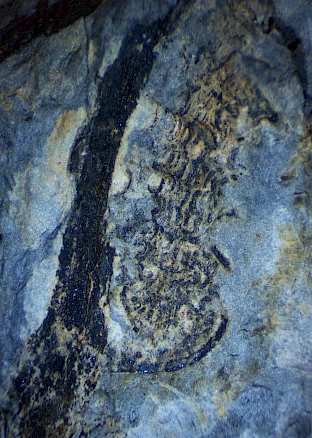Rare fossil of extinct primitive plant discovered in the Bussaco region
The fossil represents a sphenophyllous plant of the class Polypodiopsida, which lived in central Portugal around 300 million years ago.
Pedro Correia, an expert from the Faculty of Sciences and Technology of the University of Coimbra (FCTUC) and researcher at the Geosciences Centre Centre (Department of Earth Sciences - DCT), found a fossil strobilus of a new genus and new species of extinct articulated plant, the Bussacoconus zeliapereirae gen. et sp. nov. (Sphenophyllales, Polypodiopsida).
The discovery is described in the scientific article “The evolutionary macromorphological novelties of Bussacoconus zeliapereirae gen. et sp. nov. (Sphenophyllales, Polypodiopsida) from the Upper Pennsylvanian of Portugal”, which has been published in the international journal Historical Biology.
The study, led by Pedro Correia and carried out in collaboration with Artur Sá, a researcher at the University of Trás-os-Montes and Alto Douro (UTAD), provides information on how these primitive plants evolved and adapted to the changing tropical environment at the end of glaciation at the end of the Carboniferous period, 300 million years ago.
Correia, a palaeobotany specialist, says this is an amazing discovery. "This type of Sphenophyllales fruiting is rare in the fossil record, which is rather incomplete, and little is known about its true taxonomic diversity".




